
A tragedy is a genre of drama based on human suffering and, mainly, the terrible or sorrowful events that befall a main character or cast of characters. Traditionally, the intention of tragedy is to invoke an accompanying catharsis, or a "pain [that] awakens pleasure,” for the audience. While many cultures have developed forms that provoke this paradoxical response, the term tragedy often refers to a specific tradition of drama that has played a unique and important role historically in the self-definition of Western civilization. That tradition has been multiple and discontinuous, yet the term has often been used to invoke a powerful effect of cultural identity and historical continuity—"the Greeks and the Elizabethans, in one cultural form; Hellenes and Christians, in a common activity," as Raymond Williams puts it.
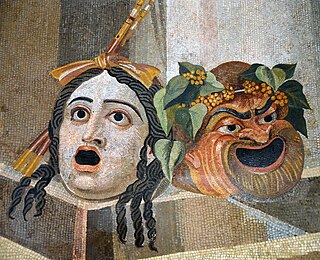
Tragicomedy is a literary genre that blends aspects of both tragic and comic forms. Most often seen in dramatic literature, the term can describe either a tragic play which contains enough comic elements to lighten the overall mood or a serious play with a happy ending. Tragicomedy, as its name implies, invokes the intended response of both the tragedy and the comedy in the audience, the former being a genre based on human suffering that invokes an accompanying catharsis and the latter being a genre intended to be humorous or amusing by inducing laughter.
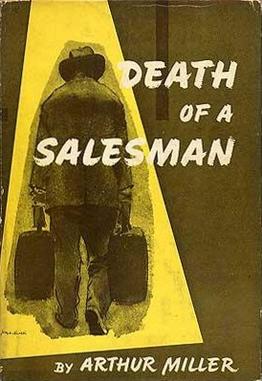
Death of a Salesman is a 1949 stage play written by the American playwright Arthur Miller. The play premiered on Broadway in February 1949, running for 742 performances. It is a two-act tragedy set in late 1940s Brooklyn told through a montage of memories, dreams, and arguments of the protagonist Willy Loman, a travelling salesman who is despondent with his life and appears to be slipping into senility. The play addresses a variety of themes, such as the American Dream, the anatomy of truth, and infidelity. It won the 1949 Pulitzer Prize for Drama and Tony Award for Best Play. It is considered by some critics to be one of the greatest plays of the 20th century. The play is included in numerous anthologies.
John Webster was an English Jacobean dramatist best known for his tragedies The White Devil and The Duchess of Malfi, which are often seen as masterpieces of the early 17th-century English stage. His life and career overlapped with Shakespeare's.

Jonathan David Larson was an American composer, lyricist and playwright, most famous for writing the musicals Rent and Tick, Tick... Boom!, which explored the social issues of multiculturalism, substance use disorder, and homophobia.
Comedy drama is a hybrid genre of works that combine elements of comedy and drama. In film, as well as scripted television series, serious dramatic subjects are dealt with realism and subtlety, while preserving a humorous tenor.
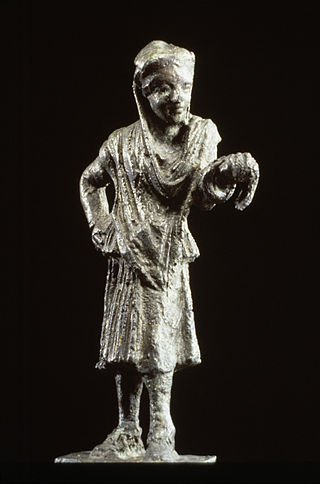
A theatrical culture flourished in ancient Greece from 700 BC. At its centre was the city-state of Athens, which became a significant cultural, political, and religious place during this period, and the theatre was institutionalised there as part of a festival called the Dionysia, which honoured the god Dionysus. Tragedy, comedy, and the satyr play were the three dramatic genres emerged there. Athens exported the festival to its numerous colonies. Modern Western theatre comes, in large measure, from the theatre of ancient Greece, from which it borrows technical terminology, classification into genres, and many of its themes, stock characters, and plot elements.
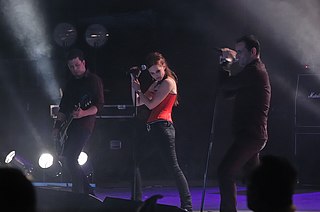
Theatre of Tragedy was a Norwegian band from Stavanger, active between 1993 and 2010. They are best known for their earlier albums, which influenced the gothic metal genre.

Michael DeLorenzo is an American actor, director, writer, producer, dancer, and musician. He is known for his work in television and film.
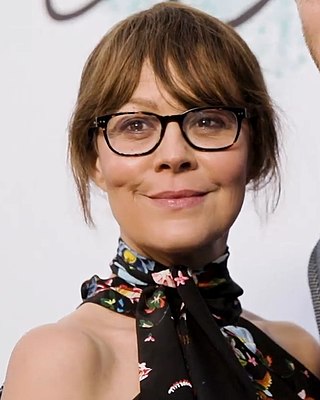
Helen Elizabeth McCrory was an English actress. After studying at the Drama Centre London, she made her professional stage debut in The Importance of Being Earnest in 1990. Other theatre roles include playing Lady Macbeth in Macbeth at Shakespeare's Globe, Olivia in Twelfth Night, Rosalind in As You Like It in the West End, and Medea in the eponymous play at the Royal National Theatre.
A tragedy is a literary work with an unhappy outcome.

Rory Michael Kinnear is an English actor. He won two Olivier Awards, both at the National Theatre, in 2008 for his portrayal of Sir Fopling Flutter in The Man of Mode, and for playing the William Shakespeare villain Iago in Othello in 2014.

Habib Tanvir was one of the most popular Indian Urdu playwrights, a theatre director, poet and actor. He was the writer of plays such as, Agra Bazar (1954) and Charandas Chor (1975). A pioneer in Urdu and Hindi theatre, he was most known for his work with Chhattisgarhi tribals, at the Naya Theatre, a theatre company he founded in 1959 in Bhopal. He went on to include indigenous performance forms such as nacha, to create not only a new theatrical language, but also milestones such as Charandas Chor, Gaon ka Naam Sasural, Mor Naam Damad and Kamdeo ka Apna Basant Ritu ka Sapna.

Drama is the specific mode of fiction represented in performance: a play, opera, mime, ballet, etc., performed in a theatre, or on radio or television. Considered as a genre of poetry in general, the dramatic mode has been contrasted with the epic and the lyrical modes ever since Aristotle's Poetics —the earliest work of dramatic theory.
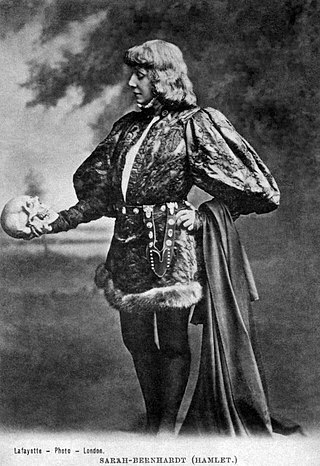
Theatre or theater is a collaborative form of performing art that uses live performers, usually actors or actresses, to present experiences of a real or imagined event before a live audience in a specific place, often a stage. The performers may communicate this experience to the audience through combinations of gesture, speech, song, music, and dance. It is the oldest form of drama, though live theatre has now been joined by modern recorded forms. Elements of art, such as painted scenery and stagecraft such as lighting are used to enhance the physicality, presence and immediacy of the experience. Places, normally buildings, where performances regularly take place are also called "theatres", as derived from the Ancient Greek θέατρον, itself from θεάομαι.
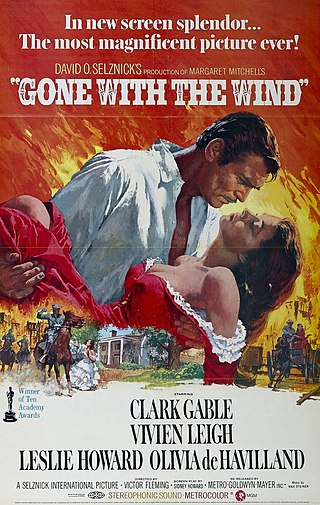
In film and television, drama is a category or genre of narrative fiction intended to be more serious than humorous in tone. The drama of this kind is usually qualified with additional terms that specify its particular super-genre, macro-genre, or micro-genre, such as soap opera, police crime drama, political drama, legal drama, historical drama, domestic drama, teen drama, and comedy-drama (dramedy). These terms tend to indicate a particular setting or subject matter, or they combine a drama's otherwise serious tone with elements that encourage a broader range of moods. To these ends, a primary element in a drama is the occurrence of conflict—emotional, social, or otherwise—and its resolution in the course of the storyline.

A play is a form of drama that primarily consists of dialogue between characters and is intended for theatrical performance rather than mere reading. The creator of a play is known as a playwright.
Richard III of England (1452–1485) King of England from 26 June 1483 until his death on 22 August 1485.













